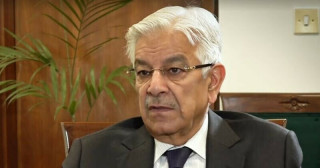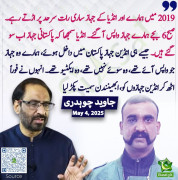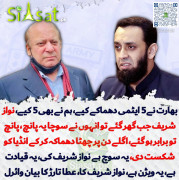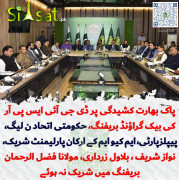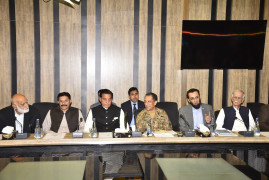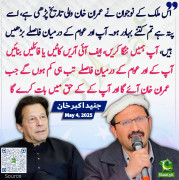Abid Hasan
Friday, August 17, 2012
From Print Edition The News

Whichever party wins the election, it will inherit an economy facing very difficult multiple challenges. The new government will be gifted an economy run into the ground by five years of criminal mismanagement. Pakistan will be facing a foreign exchange crisis, with no choice but to seek the IMF’s support. The new government will inherit a directionless “Sick Man” of Asia.
The prospect of economic recovery, after elections, would depend upon the party that wins but more importantly on the new government’s economic reform programme. The road to recovery would be very demanding since problems have been compounded by past successive governments. For too long, federal and provincial governments have been dithering and bickering on reforms, and postponing unpopular actions. So what are the minimum necessary economic and institutional reforms that the new government must take to get the country back from the brink and escape economic malaise?
First, a credible programme to overcome the energy crisis. Past programmes have skirted around the fundamental issues of poor governance, inadequate pricing and inappropriate use of natural gas. The energy crisis can only be overcome through: (i) aggressive theft and technical loss reduction programme for both power and gas companies. Ambitious theft reduction targets would need to be established, with ruthless firing of line superintendents, SDOs, XENs, etc when these targets are not met. In addition tough laws and punishments would need to be put in place, and enforced, against corrupt managers, union leaders and consumers engaged in theft.
Gas and electricity worth hundreds of billions of rupees have been stolen, with no one getting punished. Pakistan can no longer afford such high theft losses (ii) increasing power tariffs so that all costs are covered, and no additional circular debt is accumulated. This would enable full utilisation of installed capacity, and end loadshedding. Theft reduction will moderate tariff increases. Pakistani consumers have to face the reality that energy is an expensive, and largely imported good, and its full costs have to be paid for by the consumer and not through budgetary subsidies (iii) power generation gets the first right to gas, by shutting down CNG ( if necessary) and reducing allocations to fertilizer and industry.
It is far cheaper for the national economy to import fertilizer, rather than fuel oil, and switch gas to power; (iv) to reduce use of expensive imported fuel oil, special incentives and financing to encourage IPPs to switch to coal and LNG , within 2 years; (v) effective “carrot and stick” to conserve energy at peak times.
Second, an aggressive growth strategy focusing initially (first 1-2 years) on a few ‘drivers of growth’ – agriculture, housing and city development, and manufactured exports. Growth in these areas can be quickly ratcheted up through a sensible combination of policies and public/private investments, and strong coordination between federal and provincial governments. A focused strategy will ensure that scarce financial resources and institutional capacity, within government, is not spread too thin.
Critical to success are (i) not pursuing past “tried and failed” programmes; (ii) enhancing credit flow to the private sector, by lowering government borrowing through reducing fiscal deficit; (iii) reducing highly protectionist custom duties to encourage domestic manufacturers to become internationally competitive and (iv) deregulating and reducing government stranglehold on the economy.
Third, deep federal and provincial tax and expenditure reforms to prevent Pakistan from going over the fiscal cliff, as follows: (i) legislative changes so that all income , regardless of source and including remittances and agriculture income, is subject to federal income tax; (ii) imposing VAT across the board including at retail level, and eliminating all exemptions except for select items of food and medicines consumed by the poor; (iii) revising the NFC so that federal government bankruptcy is avoided, and provincial governments have strong incentive to raise own taxes; (iv) restricting federal government development expenditures only to national mega projects, with provincial governments financing all provincial projects; (v) shifting all safety net (eg BISP) and consumer subsidy ( electricity , fertilizer, etc ) programmes to the provincial governments. The provinces, and not the federal government, should decide and finance who they wish to subsidise; (vi) constitutionally binding public debt ceilings, and amending SBP Act to restrict federal and provincial government borrowings from it.
Easy SBP and NSS financing has encouraged governments to be wasteful and reduced all incentive to raise taxes; (vii) initiating a ruthless programme to cut waste, and perks and privileges of senior officials.
Fourth, implementing the following critical institutional reforms: (i) providing constitutional autonomy to the SBP; (ii) restoring constitutional protection of civil servants, along with establishing performance benchmarks and swift and transparent mechanism to get rid of incompetent and/or corrupt officials; (iii) establishing a binding policy on minimum term in position (at least 4 years) for senior civil servants; (iv) reform of lower judiciary and policing. Without an environment where life, property and contracts are secure, growth will remain elusive.
Fifth, urgent privatisation of SOEs (PIA, PSM, NBP, OGDC, PPL , PSO, SNGPL, SSGC , military’s commercial companies, railways , DISCOs and GENCOs) – all of which are dens of corruption and patronage . As long as these companies remain in public sector, corruption and losses will remain high. Many of them have cost the budget trillions of rupees over the years, with no benefit to the people of Pakistan.
The above is a Herculean order. But there are no other options left. Such a bold programme would send a strong signal to all citizens that Pakistan is changing for the better. It would not only generate strong enthusiasm among local and foreign private sectors that Pakistan is “open for business”, but also widespread support of donors – both of which are critical to get Pakistan up and running. In addition, a bold programme is necessary to counter the “headwinds” from global slowdown.
Can any party deliver the above reform programme? The PPP’s track record, except for a short period in BB’s second term, is abysmal and its re-election will be an unmitigated disaster. The PML-N has a good past record of liberalisation and privatisation, but its recent performance in Punjab has been disappointing and irresponsible. Also the reforms announced at recent public meetings are mostly of the “tried and failed” type. The PTI provides most hope for change, but instead of presenting a credible reform programme it is stuck on flirting with religious obscurantists, collecting the usual suspects and “beating on the bad”. Also what little the PTI has announced is either skirting around difficult issues or astoundingly nave – believing that reforming a government is no different from managing a private hospital or leading a cricket team.
To restore its economic dynamism, Pakistan needs an iron-willed “public sector busting” Thatcher-style leader, pursuing Chilean type economic reforms, within a Turkish variety governance model which has shown how Islam, democracy and capitalism can coexist peacefully. At best, the next government will yet again pursue skin deep reforms, and Pakistan will remain a discouraged society with unfulfilled expectations.
The writer is a former operations adviser at the World Bank. Email: fffhasan @gmail.com
Last edited by a moderator:

